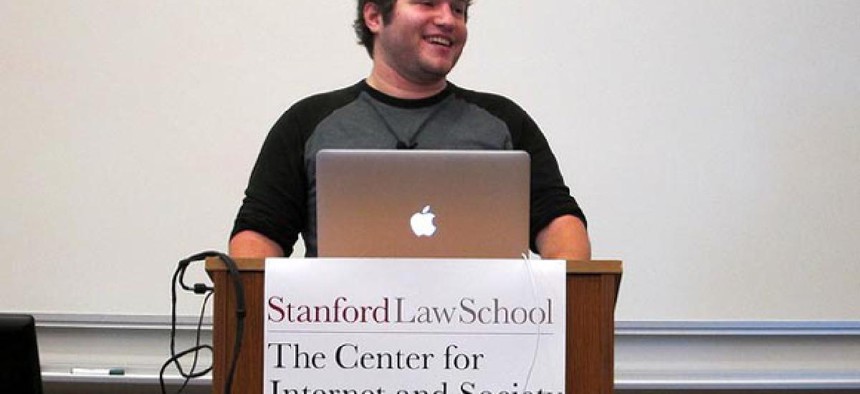How students scoop the Feds on online privacy violations

Stanford Center for Internet and Society
Google was secretly planting cookies on a vast number of iPhone browsers and college students found out the program.
Jonathan Mayer had a hunch.
A gifted computer scientist, Mayer suspected that online advertisers might be getting around browser settings that are designed to block tracking devices known as cookies. If his instinct was right, advertisers were following people as they moved from one website to another even though their browsers were configured to prevent this sort of digital shadowing. Working long hours at his office, Mayer ran a series of clever tests in which he purchased ads that acted as sniffers for the sort of unauthorized cookies he was looking for. He hit the jackpot, unearthing one of the biggest privacy scandals of the past year: Google was secretly planting cookies on a vast number of iPhone browsers. Mayer thinks millions of iPhones were targeted by Google.
This is precisely the type of privacy violation the Federal Trade Commission aims to protect consumers from, and Google, which claims the cookies were not planted in an unethical way, now reportedly faces a fine of more than $10 million. But the FTC didn't discover the violation. Mayer is a 25-year-old student working on law and computer science degrees at Stanford University. He shoehorned his sleuthing between classes and homework, working from an office he shares in the Gates Computer Science Building with students from New Zealand and Hong Kong. He doesn't get paid for his work and he doesn't get much rest.





